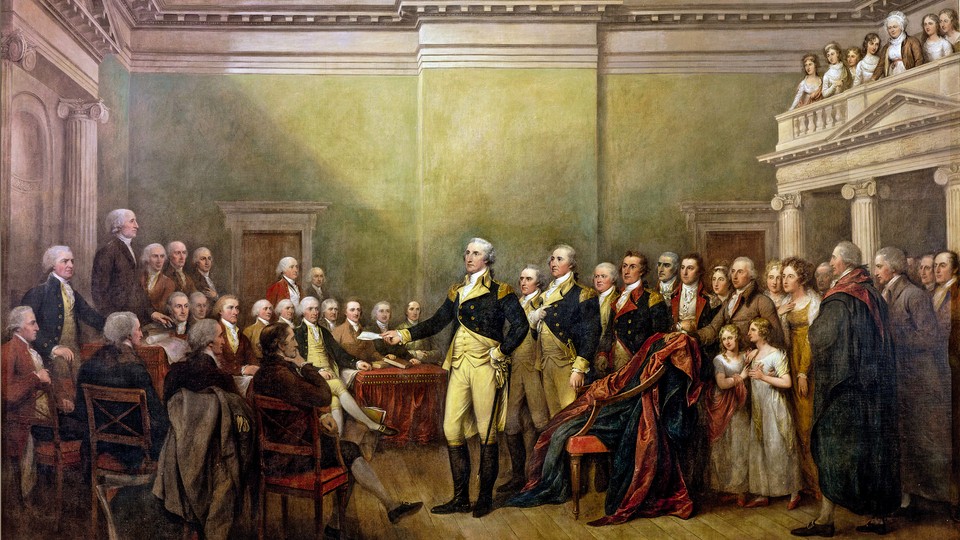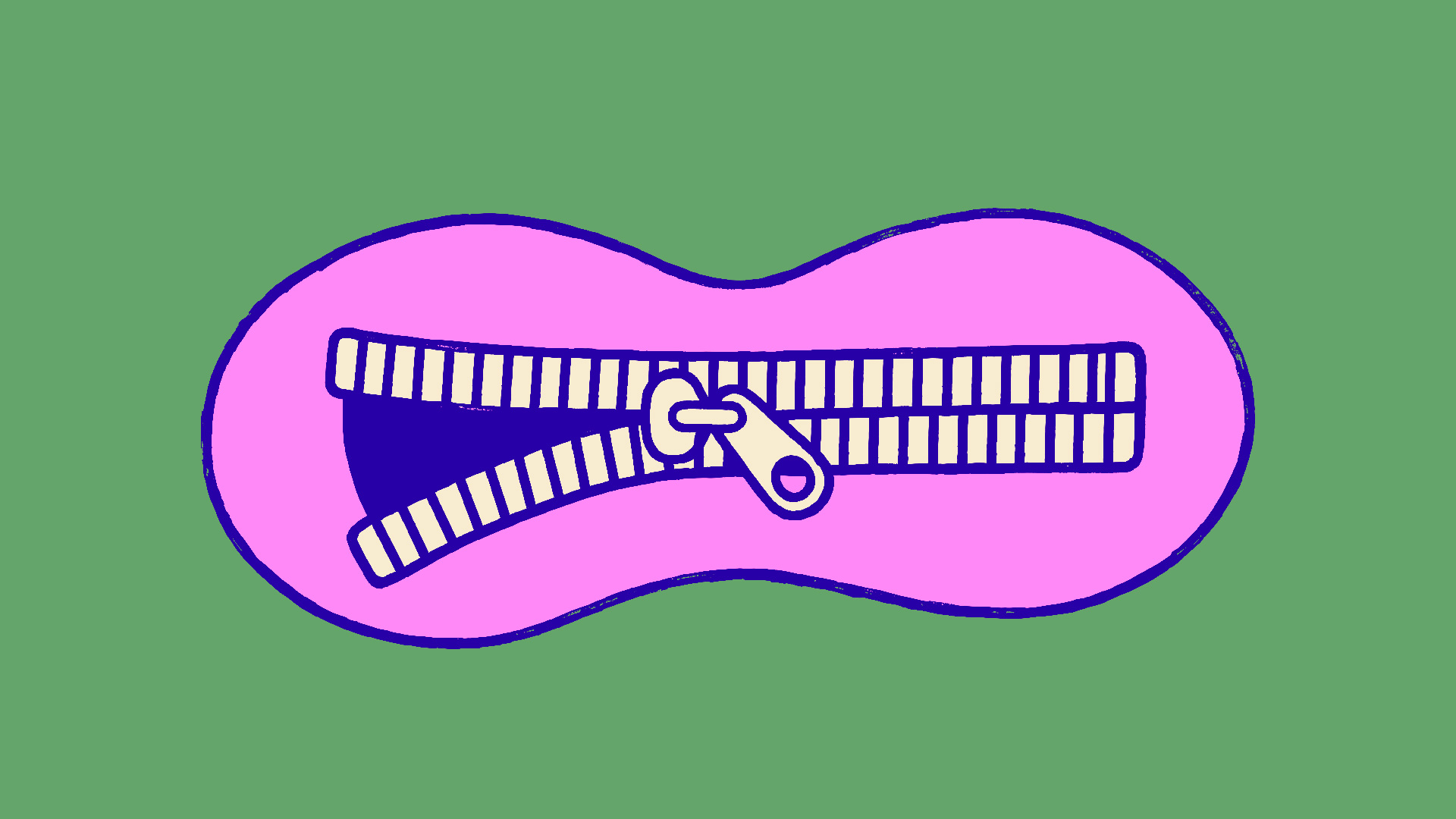A Great President, and His Opposite
5 min read
This is an edition of The Atlantic Daily, a newsletter that guides you through the biggest stories of the day, helps you discover new ideas, and recommends the best in culture. Sign up for it here.
Recently, I was rereading Livy’s History of Rome (I am obligated, contractually, to write sentences like this), in order to better understand the story of Cincinnatus, the soldier and statesman who desired only to look after his farm. “Put on thy robe and hear the words of the people,” a delegation of messengers said as they approached him. Cincinnatus, plowing his land, was a bit startled. “Is all well?” he asked.
Obviously not. “The people of Rome make thee dictator, and bid thee come forthwith to the city,” the messengers said, explaining that the city was under siege by an enemy tribe, the Aequi.
Quite an offer. We are all familiar with the tendency of great men to be tempted by the matchless possibilities of dictatorship. Cincinnatus put on his robes and went to Rome, where, over a 16-day period, he organized the defeat of the Aequi. But then he went home.
America’s first president did many great things, but as Tom Nichols notes in his new Atlantic cover story, the greatest thing George Washington ever did was return to Mount Vernon. Like Cincinnatus, he was called upon by the people to defend his nation. Like Cincinnatus, he won the affection and esteem of soldier and citizen alike. And like Cincinnatus, he could have made himself a leader for life, a despot, a king. If he’d been of different character or temperament, the American experiment—a great, noble, flawed, self-correcting, indispensable gift to humankind —would not have lasted to this day.
Washington was imperfect. He was a beneficiary of the sin of chattel slavery. But as a leader of a newly born democracy, he was also an avatar of self-restraint and self-mastery. As Tom writes in his cover story, Washington’s life and leadership were a guide for his successors. Through his example, he taught presidents how to rule, and how to return power to the people when it was time to go home.
“Forty-four men have succeeded Washington so far,” Tom writes. “Some became titans; others finished their terms without distinction; a few ended their service to the nation in ignominy. But each of them knew that the day would come when it would be their duty and honor to return the presidency to the people.”
All but one, of course: the ex-president trying to regain the office he lost in a free and fair election four years ago, and signaling that he will refuse to concede should he lose again.
The story of George Washington and Donald Trump is the sad tale of a country once led by a Cincinnatus but now being duped by a grifter. Yet Washington’s example is alive to us, if we choose to pay attention. Several months ago, I told Tom of my preoccupation with Washington. Tom, who writes this newsletter for us, served for many years with distinction on the faculty of the Naval War College, and he has the correct sort of reverence for the nation’s founders (which is to say, a critical sort of reverence). Tom did not initially react with fervent enthusiasm. Later—long after I had hectored him into writing this story—he explained why. “Like many Americans, I found Washington intimidating. He didn’t seem quite human. In every picture of Washington, he’s giving you this disapproving side-eye. Now I know that that was the look he was giving Gilbert Stuart, whom he didn’t like. But in any case, other presidents always seemed real to me—I grew up in Massachusetts, and we called Kennedy ‘Jack.’ Even Lincoln was real to me, but Washington just seemed unapproachable, like the obelisk built in his honor.”
Tom’s subsequent exploration of Washington’s record and character is what I suggest you read tonight, or as soon as possible. Even those who believe they understand Washington’s greatness will be surprised by the degree to which Donald Trump is so obviously his opposite—Trump, who seeks to be a dictator, who believes he is smarter than any general or statesman, who evinces no ability to learn, who possesses no humility, who divides Americans rather than unites them.
Tom writes of Washington, “Although he was a man of fierce ambition, his character was tempered by humility and bound up in his commitment to republican ideals: He led an American army only in the name of the American people and its elected representatives, and he never saw that army as his personal property. His soldiers were citizens, like him, and they were serving at his side in a common cause.”
We are a month away from an election that will decide America’s future. My suggestion, particularly for those of you who are still undecided about the path forward, is to read about the past, and understand what a great president can be.
Read the cover story here.
Here are four new stories from The Atlantic:
- Hurricane disinformation is a precursor to November.
- The Trump believability gap
- Bill Adair: What I didn’t understand about political lying
- The most dramatic shift in U.S. public opinion
Today’s News
- Hurricane Milton, a Category 3 storm, is expected to make landfall tonight near Florida’s Tampa Bay coastline.
- President Joe Biden and Israeli Prime Minister Benjamin Netanyahu spoke on the phone for the first time in two months. They were expected to discuss Israel’s plans to strike back against Iran.
- Brazil lifted its ban on X yesterday after the company complied with the Brazilian supreme court’s orders.
More From The Atlantic
- Hillels are under attack, Mayim Bialik argues.
- Michael Oren: The mistakes Israel can’t afford to repeat
- Hurricane Milton made a terrible prediction come true.
Evening Read

What Went Wrong at Blizzard Entertainment
By Jason Schreier
Over the past three years, as I worked on a book about the history of the video-game company Blizzard Entertainment, a disconcerting question kept popping into my head: Why does success seem so awful? Even typing that out feels almost anti-American, anathema to the ethos of hard work and ambition that has propelled so many of the great minds and ideas that have changed the world.
But Blizzard makes a good case for the modest achievement over the astronomical.
Read the full article.
Culture Break

Read. These six books are for people who love watching movies.
Phone a friend. “Whenever a friend tells me something, I blab about it to other people. Why can’t I stop?” a reader asks James Parker in his new advice column, “Dear James.”
Play our daily crossword.
Stephanie Bai contributed to this newsletter.
When you buy a book using a link in this newsletter, we receive a commission. Thank you for supporting The Atlantic.



